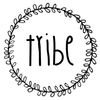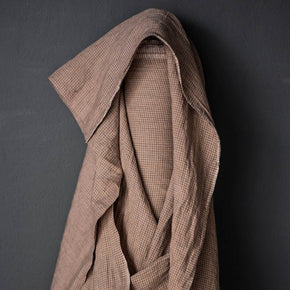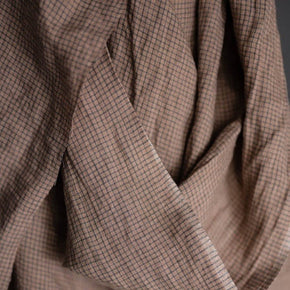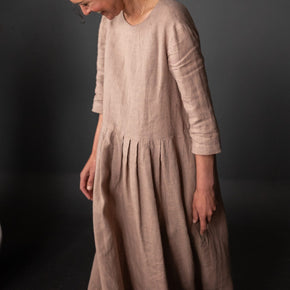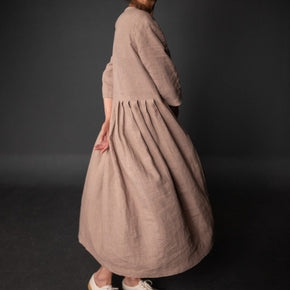Merchant & Mills European Linen : Fudge Check
$68.00
Lovely laundered European linen, in a subtle dusty nude with a small grey check, perfect for dress-making and home projects.
Suitable for many Merchant & Mills sewing patterns, ideally dresses, tops, and loose fitting trousers.
Produced in small batches in Eastern Europe, with a strong heritage of spinning and weaving linen, this fabric is tumbled at the mill for softness.
100% linen fabric / 140cm wide / check size 4mm / Made using AZO-free dyes
Price is per metre, please contact us for a custom order with incremental quantities.
Care: Wash at 30 degrees with a non bio detergent. Do not tumble. Shake out and dry flat. Linen will always seize up after washing but as soon as you start to use/wear it, the fibres relax again. Do not dry in direct sunlight which will fade colours.
Stocked in the world’s most respected outlets, Merchant & Mills high quality sewing needs emerge, never rushed to market, but slowly developed to be exemplary, desirable and pragmatic.
More about linen:
Linen is naturally stain resistant, does not pile, and is moth repellent. It is easy to wash as it can sustain high temperatures, is has very little if no shrinkage and is very strong.
It is anti-bacterial, anti-fungal, hypo allergenic and thermoregulating, it will also absorb up 20% moisture before feeling damp.
As the linen fibres have low elasticity (which causes it to crease) it will wear in any areas that are repeatedly folded in the same place for a long time, however it does have much better abrasion resistance than say cotton.
Eco Credentials:
Flax is a strong plant best grown in northern Europe. It needs little or no fertilisers and due to the local climate, little extra water. It doesn’t really require many pesticides either as it can grow in poor quality soil. The Advisory Commission Report to the European Parliament stated that flax cultivation has positive effects on eco-system diversity as it allows for an “environmental pause”. One hectare of flax can retain 3.7 tonnes of CO2. Every part of the plant is used, what isn’t used to produce linen can be used to make linseed oil, paper, cattle feed or even soap.
Linen is therefore almost naturally organic. It is completely biodegradable, recyclable and due to its natural absorbency, it requires less dye than cotton. Linen therefore scores high on the ecological chart.
This linen is made at a mill which uses electricity supplied solely from renewable energy sources.




